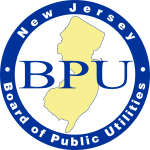
The Federal Energy Regulatory Commission (FERC) is the independent agency of the United States government that regulates the transmission and wholesale sale of electricity and natural gas in interstate commerce and regulates the transportation of oil by pipeline in interstate commerce. FERC also reviews proposals to build interstate natural gas pipelines, natural gas storage projects, and liquefied natural gas (LNG) terminals, in addition to licensing non-federal hydropower projects.
NSTAR was a utility company that provided retail electricity and natural gas to 1.4 million customers in eastern and central Massachusetts, including the Boston urban area. NSTAR became a subsidiary of Northeast Utilities in April 2012. In February 2015, Northeast Utilities and all of its operating companies became one large company known as Eversource Energy.
Eversource Energy is a publicly traded, Fortune 500 energy company headquartered in Hartford, Connecticut, and Boston, Massachusetts, with several regulated subsidiaries offering retail electricity, natural gas service and water service to approximately 4 million customers in Connecticut, Massachusetts, and New Hampshire.
The Public Service Enterprise Group (PSEG) is a publicly traded diversified energy company headquartered in Newark, New Jersey, US established in 1985 with a legacy dating back to 1903.

The electricity sector in Canada has played a significant role in the economic and political life of the country since the late 19th century. The sector is organized along provincial and territorial lines. In a majority of provinces, large government-owned integrated public utilities play a leading role in the generation, transmission, and distribution of electricity. Ontario and Alberta have created electricity markets in the last decade to increase investment and competition in this sector of the economy.

The California Public Utilities Commission is a regulatory agency that regulates privately owned public utilities in the state of California, including electric power, telecommunications, natural gas and water companies. In addition, the CPUC regulates common carriers, including household goods movers, limousines, rideshare services, self-driving cars, and rail crossing safety. The CPUC has headquarters in the Civic Center district of San Francisco, and field offices in Los Angeles and Sacramento.
Jeanne Fox is the former President of the New Jersey Board of Public Utilities. She was originally appointed to the position in 2002 by former Gov. James McGreevey and was retained in the Cabinets of former Gov. Richard Codey and Gov. Jon Corzine. Fox retired from the NJ BPU in September 2014 and was succeeded by Upendra J. Chivukula.
The Public Utilities Commission of Ohio (PUCO) is the public utilities commission of the U.S. state of Ohio, charged with the regulation of utility service providers such as those of electricity, natural gas, and telecommunications as well as railroad safety and intrastate hazardous materials transport.
The Florida Public Service Commission (FPSC) regulates investor-owned electric, natural gas, and water and wastewater utilities. The FPSC facilitates competitive markets in the telecommunications industry, has authority over intercarrier disputes, and oversees pay telephones, the federal Lifeline Assistance Program and Telecommunications Relay Service.
The Vermont Public Utility Commission is a government agency of the State of Vermont that supervises the rates, quality of service, and overall financial management of public utilities in Vermont. Established under Title 30 of the Vermont Statutes Annotated, the Commission exercises quasi-judicial oversight of electric, natural gas, telecommunications, and private water companies. The Commission also serves as the franchising authority for cable television systems in Vermont. In addition, the Commission reviews environmental and economic impacts of proposals to purchase energy supply or build new energy facilities; monitors the safety of hydroelectric dams; evaluates the financial aspects of nuclear plant decommissioning and radioactive waste storage; reviews rates paid to independent power producers; and oversees the statewide Energy Efficiency Utility programs.
The Commission comprises a Chairman and two Commissioners, all of whom are nominated by the Vermont Judicial Nominating Board, appointed by the Governor of Vermont and confirmed by the Vermont Senate. The Chairman and Commissioners serve staggered six-year terms. The Commission's office is located at 112 State Street in Montpelier, Vermont.
There is a large array of stakeholders that provide services through electricity generation, transmission, distribution and marketing for industrial, commercial, public and residential customers in the United States. It also includes many public institutions that regulate the sector. In 1996, there were 3,195 electric utilities in the United States, of which fewer than 1,000 were engaged in power generation. This leaves a large number of mostly smaller utilities engaged only in power distribution. There were also 65 power marketers. Of all utilities, 2,020 were publicly owned, 932 were rural electric cooperatives, and 243 were investor-owned utilities. The electricity transmission network is controlled by Independent System Operators or Regional Transmission Organizations, which are not-for-profit organizations that are obliged to provide indiscriminate access to various suppliers to promote competition.
The National Association of Regulatory Utility Commissioners (NARUC) is the national association representing the U.S. state public service commissioners who regulate essential utility services, including energy, telecommunications, and water. Founded in 1889, the Association is a resource for its members and the regulatory community, providing a venue to set and influence public policy, share best practices, and foster solutions to improve regulation.
The Iowa Utilities Board (IUB) is a 3-member public utilities commission, with beginnings in 1878. It is a quasi-judicial tribunal, which regulates services and rates of electric, natural gas, water and telecommunication providers, as well as all pipelines and transmission lines in the U.S. state of Iowa and has existed with its present name since 1986.
Wind power in New Jersey is in the early stages of development. New Jersey has just six wind turbines, but the state has plans to develop several major offshore wind projects on the continental shelf of the Atlantic Ocean off the southern Jersey Shore. Legislation has been enacted to support the industry through economic incentives and to permit wind turbines on existing piers.
Maria Rodriguez-Gregg is a former American Republican Party politician who served in the New Jersey General Assembly from 2014 to 2018 representing the 8th Legislative District. She succeeded Scott Rudder to become the first Republican Hispanic woman to be elected to the New Jersey Legislature.
Lee A. Solomon is an associate justice of the Supreme Court of New Jersey. He was nominated by Governor Chris Christie to serve on May 21, 2014 and confirmed by the New Jersey Senate and sworn in on June 19, 2014.

Richard (Rick) Mroz was the president of the New Jersey Board of Public Utilities (BPU) from 2014 to 2018. He is the founder and managing director of Resolute Strategies, LLC and also Senior Director for Strategic & Regulatory Affairs at Archer Public Affairs in Trenton, New Jersey. He has a long career in law and government and is an advocate in securing and making the grid more resilient from cyber and physical attacks. He is an adviser to industry and commentator on energy and security issues.

The 2022 United States House of Representatives elections in New Jersey were held on November 8, 2022, to elect the 12 U.S. representatives from the state of New Jersey, one from each of the state's 12 congressional districts.

The 2025 New Jersey gubernatorial election is scheduled to take place on November 4, 2025, to elect the governor of New Jersey. Incumbent Democratic Governor Phil Murphy is term-limited and ineligible to seek a third consecutive term. Jack Ciattarelli, the Republican nominee for governor in 2021, has stated he intends to run again.

The 2023 New Jersey General Assembly elections will be held on November 7, 2023. New Jersey voters will elect two Assembly members in all of the state's legislative districts for a two-year term to the New Jersey General Assembly.






